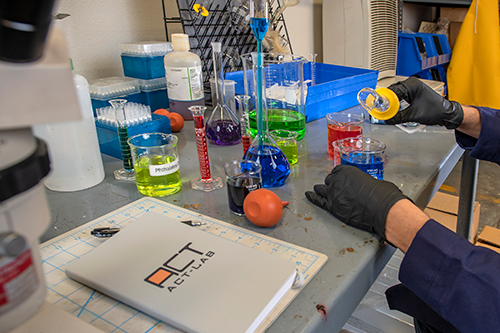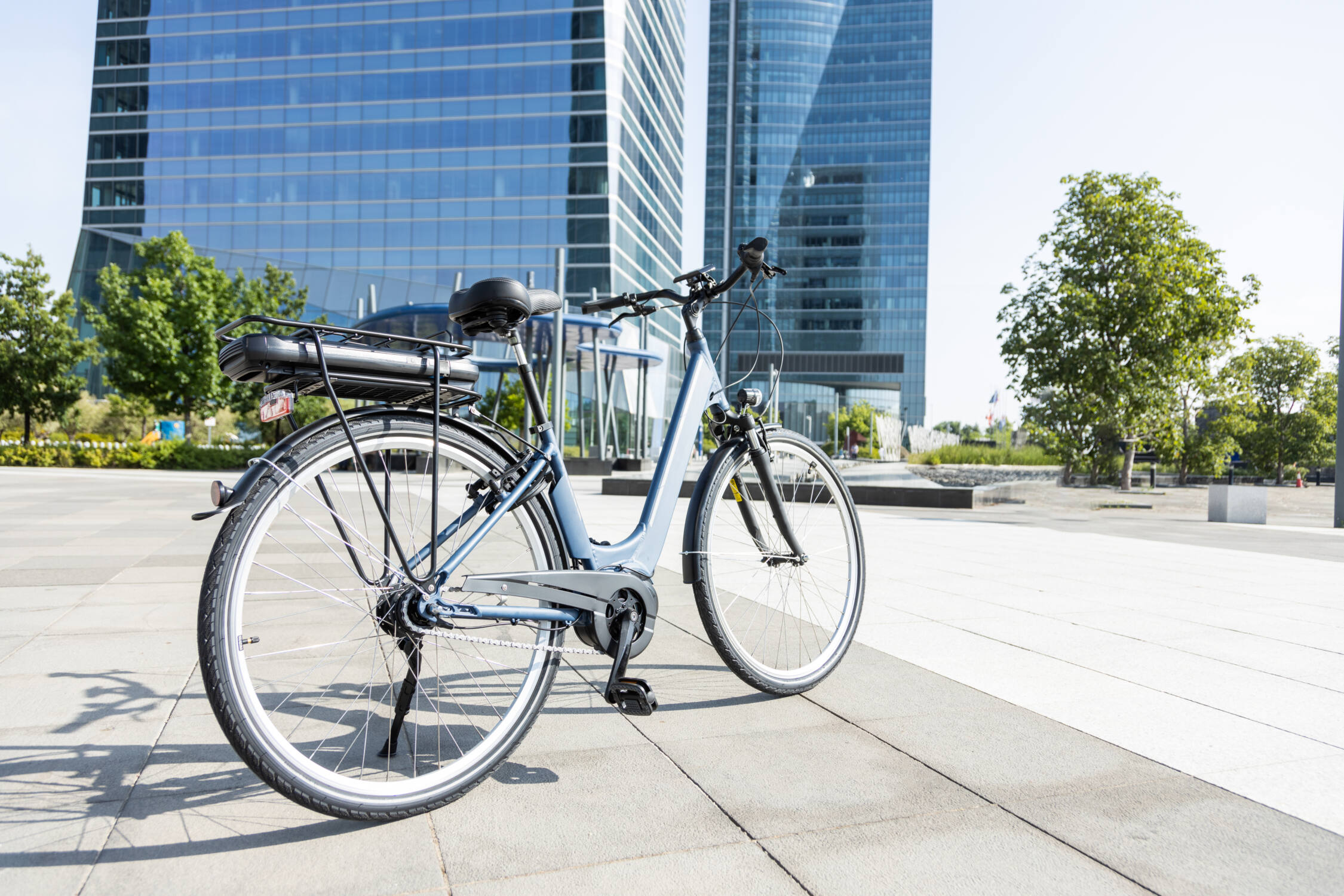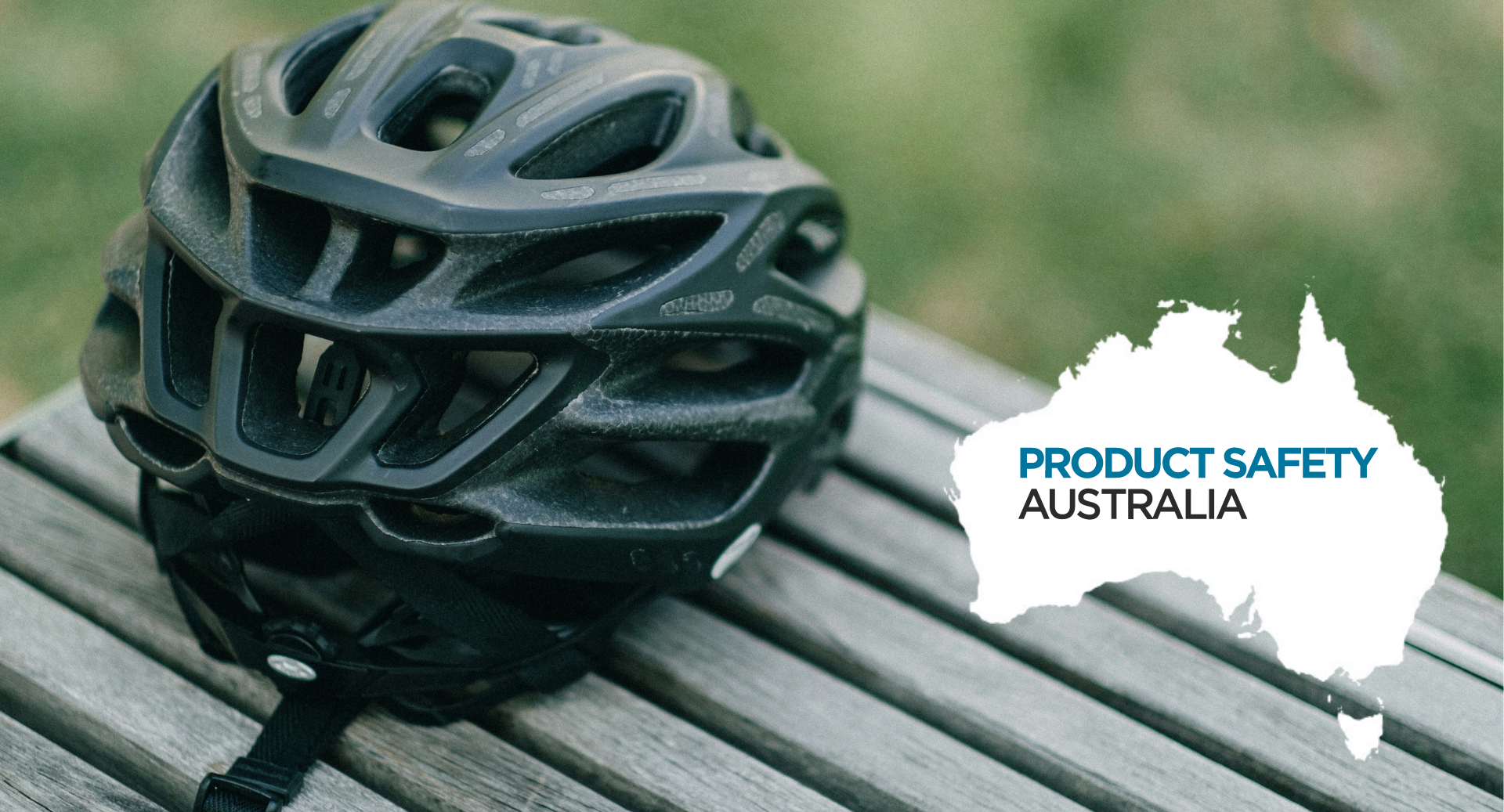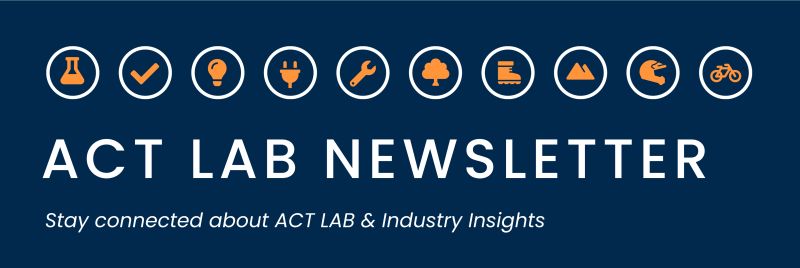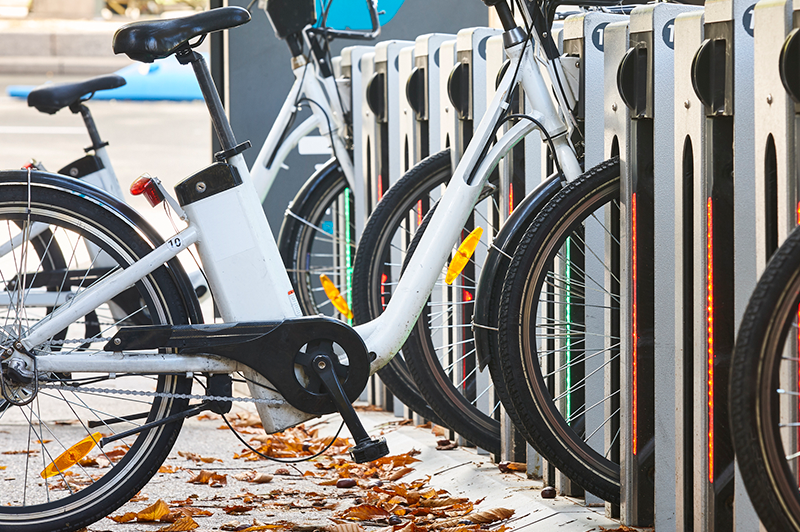
Bicycle & E-Bike Testing
ACT Lab is here to help you navigate the complicated world of bicycle safety and compliance. ACT’s strong foundation in the bicycle industry allows us to provide superior testing and consultation services within all aspects of the supply chain. Our team of experts will work with you to ensure product compliance with regional and international standards such as CPSC, ISO, EN, GB, and more. Learn more about our e-validate Directory, this online resource provides instantaneous verification of compliance, demonstrating to buyers and regulatory services that your products have been thoroughly tested and are compliant with important micromobility safety standards
Testing Services
Electric Scooter Testing
To reduce the number of injuries in powered scooters, the CPSC has taken the initiative, providing technical support for the development of new safety standards for electric and gas powered scooters. To comply with the CPSC standards, ACT Lab offers extensive scooter testing on powered scooters to reduce brake failure, wobbly wheels, lose handle bars and other product defects. Powered scooters are a relatively popular means of transportation which makes it very important that every component adheres to the industry standards and regulations.
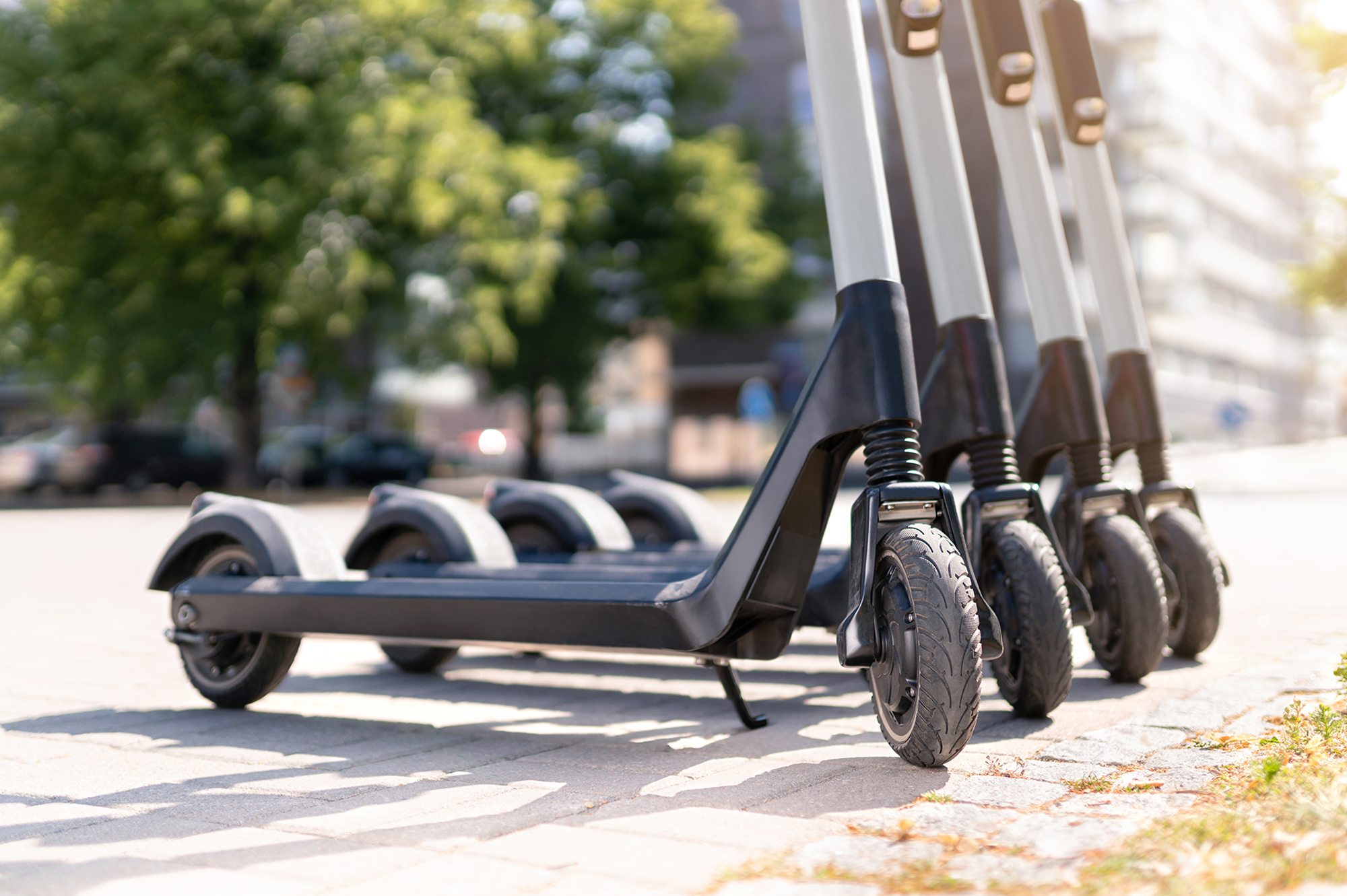
Testing Services

Helmet Safety Testing
Every helmet should have a sticker on the inside, and sometimes on the back exterior, that lists the helmet weight, manufacturing information, and safety certifications, among other information. Helmet testing is necessary in order to protect the public from injuries. At ACT Lab, we perform tests including: force/impact absorption, strap strength, roll-off prevention, peripheral vision and more that comply with CPSC standards and provide safety in falls or crashes. Bicycle helmets that fail any of the requirements violate the Consumer Product Safety Act.
Testing Services
Jewelry Testing
The biggest risk with jewelry is that it may contain lead. This is a toxic metal that will not break down in nature and can accumulate in a human’s body. In addition, the standard addresses hazards associated with children’s jewelry testing including the potential for exposure to cadmium from mouthing or swallowing small metal jewelry components and other parts of children’s jewelry. High levels of lead in children have been known to lead to a variety of health problems. The federal Consumer Product Safety Commission requires children’s metal jewelry to be tested for total lead concentration. California Prop 65 requires testing for lead and cadmium in both children’s and adult’s jewelry.


Toy and Children’s Product Safety Testing
Manufactures and importers of children’s products are required to follow certain testing and certification protocols established by the US Consumer Product Safety Commission. The law defines a children’s product as a consumer product designed or intended for a child 12 years of age or younger. Children’s products are required to undergo third party testing and to have a written Children’s Product Certificate demonstrating compliance. ACT Lab is devoted to complying with CPS-administered regulations and can perform various tests to ensure that children’s products follow CPSC regulations.
Outdoor & Sporting Goods Testing
It is essential for an athlete’s gear to perform under stress. Leaders in the industry understand it is crucial for sporting goods manufacturers, retailers, suppliers, and distributors to strive for the highest standards in quality and safety. Most popular brands comply with local and international regulations to ensure their product performance stays on par with an ever-changing competitive landscape.


E-Mobility Products Testing
The global electric mobility market size is expected to reach $478.9 billion by 2025, which is a market growth of $24.7 billion from 2019. In the compliance and testing world, increased market size leads to an increase in global standards and regulations. ACT Lab is deeply involved in the development of e-mobility standards, giving us specialized industry insight. Our testing services for e-mobility products include e-bikes, e-scooters, e-rideshare products, e-skates, e-skateboards, hoverboards, and more.

Hardline Testing
Hardline Testing is designed to guarantee the safety and quality compliance of your hard products. Through thorough product testing, we not only minimize the risk of recalls by local and international government agencies but also establish trust with end-users. Our commitment to rigorous testing and adherence to safety and quality standards ensures your products meet the highest industry benchmarks.
Products
Packaging
Furniture
Bed & Mattress
Storage Unit
Child Use & Care Articles
Material & Articles in Contact with Food
Textile Product Testing
Textile Testing services helps you to guarantee that your textile products meet both local and international safety and quality standards. We offer comprehensive mechanical and chemical testing services compliant with ISO, ASTM, AATCC, NEXT, and IS, ensuring your textiles meet the highest industry benchmarks for safety and quality.

Products
Activewear
Outerwear
Belts
Curtains
Towels
Soft Home Furnishing

Leather & Footwear Test
Leather & Footwear testing includes comprehensive testing services that are dedicated to ensuring that your leather and footwear products not only meet but exceed the highest quality standards and international compliance requirements. We subject these products to a variety of environmental conditions to prevent premature wear, and we’re committed to suggesting product improvements whenever and wherever needed. Our aim is to enhance the longevity and performance of your leather and footwear items while maintaining strict adherence to global standards, providing you with the utmost confidence in your product’s quality and durability.
Services Offered
Footwear & Leather Product Testing
Fashion Footwear Testing
Safety Footwear Testing & Certification
Durability Testing
Restricted Substance List (RSL) Testing
EU Directive Testing
Mold Prevention Solution
Inspection
Technical Consultancy
Design Evaluation
Toys and Similar Product Testing
Toy Testing services are dedicated to ensuring the safety, quality, and compliance of children’s toys. We understand the importance of toys in a child’s development, which is why we conduct rigorous safety testing, comprehensive analyses, and experiments on all product parts, components, materials, and finished products. Our goal is to guarantee that toys are not only free from harmful substances but also feature verified designs, providing the assurance that children’s toys meet the highest safety and quality standards.
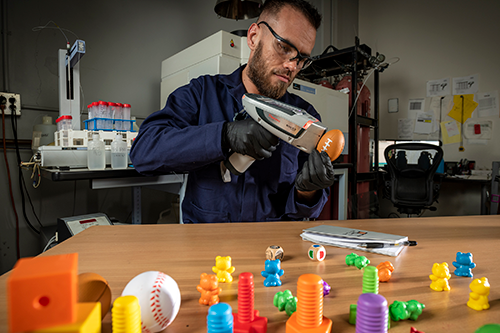
Products
Consumer Product Safety Improvement ACT Testing (CPSIA)
Juvenile Products Testing
EU Toy Directive Testing

Furniture Test
Furniture Testing services are designed to help you with comprehensive insights into the strength, durability, and stability of your furniture products. Beyond structural assessments, we conduct rigorous chemical tests to guarantee that all the raw materials utilized in furniture construction not only comply with regulations but also meet the highest safety standards. Our commitment is to ensure that your furniture products not only endure the test of time but also prioritize the safety and well-being of end-users.
Services Offered
Furniture Mechanical Testing
Furniture Flammability Testing
Furniture Chemical Testing
Surface Resistance Testing
Wood Based Material Testing
Furniture Finishing Testing
Furniture Textile Testing
Furniture Textile Testing
Food Contact Materials Tests
Food Contact Material (FCM) Testing services encompass a comprehensive examination of all materials intended for contact with food products throughout the supply chain. FCMs play a pivotal role in ensuring food safety, and our testing procedures are designed to guarantee that these products do not alter the organoleptic characteristics of the food they come in contact with. We understand the critical role FCMs play in preserving the integrity of food products, and our rigorous testing procedures are aimed at upholding the highest standards in food safety.

Material Categories
- Plastic
- Paper and paperboard
- Bamboo
- Stainless Steel
- Metals and alloys
- Ceramic
- Other FCMs
Services Offered
- Migration Testing
- Residual content analysis
- Detection of undesirable or unintentionally added substances (NIAS)
- Organoleptic analysis
- Extractable and leachables study

Electrical & Electronics Testing Services
We offer comprehensive testing and certification services for your electrical and electronic products across the entire supply chain. Our electrical and electronics testing ensures the durability, functionality, and safety of your products. We assist manufacturers and suppliers in verifying that their products not only meet regulatory safety requirements but also establish credibility with consumers. Our commitment is to help you deliver products that are reliable.
Services Offered
Domestic Electrical Appliances
As per IS, IEC, BS EN
Environmental Test Facility
As per IS, IEC, BS EN
Lamps, Luminaries & Accessories
As per IS, IEC, BS EN
Electrical Toys
ICT
Wireless and IOT
Battery
Tools
 ISO/IEC 17025 Accredited Independent Testing Laboratory
ISO/IEC 17025 Accredited Independent Testing Laboratory

